基于Android安卓平台的图书馆管理系统APP自动化测试(Android Studio)

1.无需注册登录,支付后按照提示操作即可获取该资料.
2.资料以网页介绍的为准,下载后不会有水印.资料仅供学习参考之用.
密 惠 保
基于Android安卓平台的图书馆管理系统APP自动化测试(Android Studio)(任务书,开题报告,论文说明书18000字,程序代码)
摘要
移动互联网的高速发展给各个行业领域带来了新的机遇和挑战,使得在线管理和移动办公变得更加高效和便利。图书馆管理系统是大多数图书馆在线管理书籍常采用的办法,用户能够通过该系统查询、借阅和归还书籍等,管理员能够管理图书和用户的信息。正因为移动互联网的高便携性,大部分图书馆都致力于开发移动端的图书馆管理系统。
本文首先对设计原理和技术基础进行了解,再从实际需求出发对图书馆进行系统分析。最后,设计并实现图书馆管理系统。针对软件开发过程中存在许多未知的bug,需要对自动化测试工具Appium进行了解,再搭建好测试平台的环境,设计并实现自动化测试。通过对该系统的多个功能模块进行功能测试,找出并修正软件的错误,以确保软件的正确性和稳定性。
关键词:Android;Appium;图书馆;自动化测试
Abstract
The rapid development of mobile Internet has brought new opportunities and challenges to various industry sectors, making online management and mobile office more efficient and convenient. The library management system is often used to manage books onlineby most libraries. Users can query, borrow and return books through the system and administrators can manage the information of books and users. Because of the high portability of mobile Internet, most libraries are committed to the development of mobile library management system.
[资料来源:http://THINK58.com]
This paper first introduces the design principles and technical basis, and thenanalyse the library system proceeding from the actual needs. Finally,designs and implements the library management system. For there are many unknown bugs during the software development process,it is necessary to understand the automated test tool Appium,and then build a test platform environment and excute automated testing. Through the functional testing of multiple functional modules of the system,identify and correct software errors to ensure the correctness and stability of the software.
Keywords:Android;Appium;Library;Automated testing
需求分析
本文的研究基于学校图书馆,主要的用户对象为学生和图书馆管理员。因此图书馆的管理系统应分为学生端和管理员端,将在下文分别进行介绍。
学生作为学校图书馆的用户,应具有学号、姓名、账号和密码等基本信息。功能上应该能够进行图书的馆藏查询功能,能够按图书的标题、作者和ISBN来查询图书;在查询到图书之后,能够根据当前图书的状态对其进行借阅或者归还。
本文的具体内容安排如下:
[版权所有:http://think58.com]
第一章:绪论。探讨本论文的研究背景及意义,进而探讨当前国内外的研究现状,最后再描述主要研究内容。
第二章:设计原理与技术基础。首先对Android平台和相关工具进行介绍,再了解课题中所应用到的Java基础和XML基础。
第三章:系统设计与实现。先进行需求分析,再分模块对图书馆管理系统的Android客户端进行设计,分别为功能设计和数据库设计。最后,综合分析和设计进行开发实现。
第四章:自动化测试设计与实现。首先配置Appium的测试环境,再用Eclipse编写测试用例,最后通过Appium进行自动化测试的设计并实现并对结果分析得出结论。
第五章:总结和展望。对本文的研究内容进行概括总结,并分析从中获得的经验,同时展望未来的研究中值得更进一步的探讨的地方。
[资料来源:http://THINK58.com]
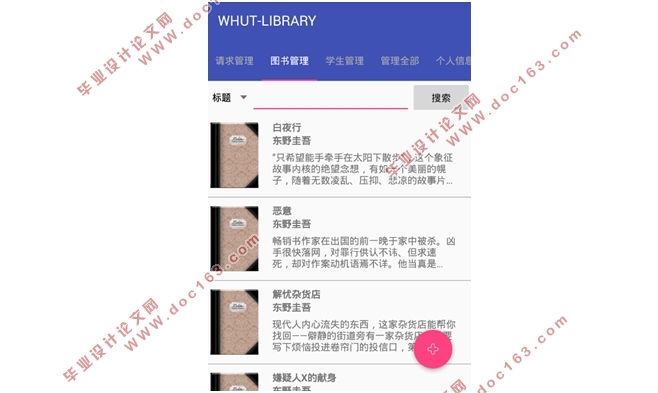
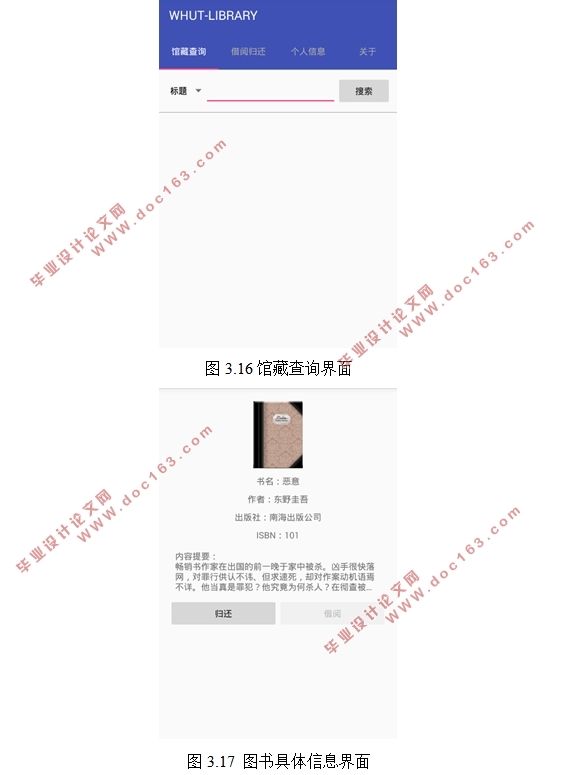
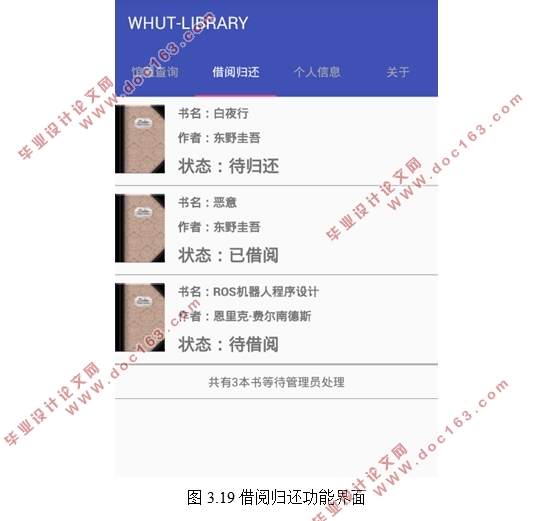
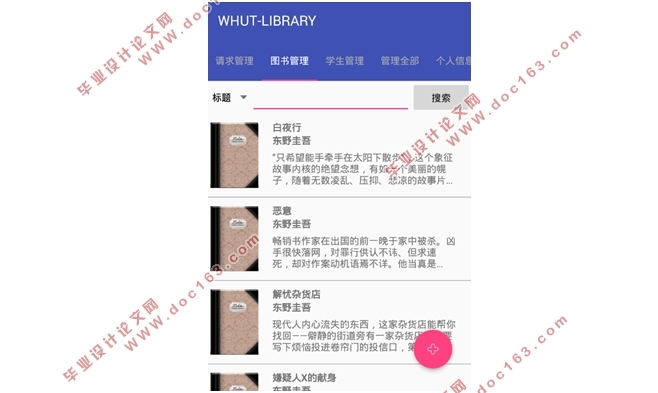
[资料来源:http://think58.com]
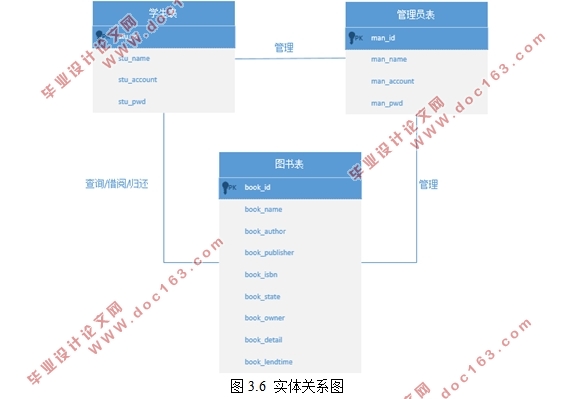
目录
第1章绪论 1
1.1 研究背景及意义 1
1.2 国内外研究现状 2
1.3 主要研究内容 3
1.4 论文内容安排 4
第2章设计原理与技术基础 5
2.1 Android平台简介 5
2.1.1 Android平台概述 5
2.1.2 Android常用组件 5
2.2 相关工具简介 7
2.2.1 Android Studio 7
2.2.2 Genymotion 7
2.2.3 Appium 7
2.3 技术基础 8
2.3.1 JAVA基础 8
2.3.2 XML基础 9
第3章系统设计与实现 11
[资料来源:http://think58.com]
3.1 需求分析 11
3.2 系统数据库设计 12
3.3 系统功能设计 14
3.3.1 登录功能设计 14
3.3.2 学生端功能设计 15
3.3.3 管理员端功能设计 16
3.4 系统功能实现 19
3.4.1 登录功能实现 19
3.4.2 学生端功能实现 20
3.4.3 管理员端功能实现 22
3.5系统数据库实现 29
第4章自动化测试设计与实现 31
4.1 测试环境配置 31
4.2 相关测试技术及原理 31
4.2.1 JUnit相关技术原理 31
4.2.2 Appium工作原理 33
4.3 自动化测试设计 34
4.4 自动化测试实现 35
第5章总结和展望 39
5.1 总结 39
5.2 展望 39
参考文献 41
致谢 42 [资料来源:http://THINK58.com]
上一篇:基于安卓Android的光伏电站数据管理系统APP的设计
下一篇:基于Java的汽车租赁管理系统设计(C/S架构,MySQL)
